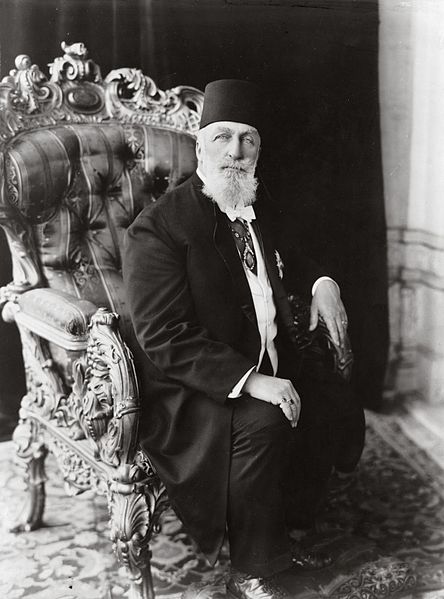By Paul Cobb
Recently the jihadist insurgent group formerly known as the Islamic State in Iraq and Syria (ISIS) underwent a re-branding of sorts when one of its leaders, known by the sobriquet Abu Bakr al-Baghdadi, was proclaimed caliph by the group’s members. In keeping with the horizonless pretentions that such a title theoretically conveys, the group dropped their geographical focus and embraced a more universalist outlook, settling for the name of the ‘Islamic State’.
As a few observers have noted, the title of caliph comes freighted with a long and complicated history. That history begins in the seventh century AD, when the title was adopted to denote those leaders of the Muslim community who were recognized as the Prophet Muhammad’s “successors”— not prophets themselves of course, but men who were expected, in the Prophet’s absence, to know how to guide the community spiritually as well as politically. Later in the medieval period, classical Islamic political theory sought to carefully define the pool from which caliphs might be drawn and to stipulate specific criteria that a caliph must possess, such as lineage, probity, moral standing and so on. Save for his most ardent followers, Muslims have found al-Baghdadi — with his penchant for Rolex watches and theatrical career reinventions — sorely wanting in such caliphal credentials.
He’s not the only one of course. Over the span of Islamic history, the title of caliph has been adopted by numerous (and sometimes competing) dynasties, rebels, and pretenders. The last ruler to bear the title in any significant way was the Ottoman Abdülmecid II, who lost the title when he was exiled in 1924. And even then it was an honorific supported only by myths of Ottoman legitimacy. But it’s doubtful that al-Baghdadi gives the Ottomans much thought. For he is really tapping into a much more recent dream of reviving the caliphate embraced by various Islamist groups since the early 20th century, who saw it as a precondition for reviving the Muslim community or to combat Western imperialism. Al-Baghdadi’s caliphate is thus a modern confection, despite its medieval trappings.
That an Islamic fundamentalist (to use a contested term of its own) like al-Baghdadi should make an appeal to the past to legitimate himself, and that he should do so without any thoughtful reference to Islamic history, is of course the most banal of observations to make about his activities, or about those of any fundamentalist. And perhaps that is the most interesting point about this episode. For the utterly commonplace nature of examples like al-Baghdadi’s clumsy claim to be caliph suggest that Islamic history today is in danger of becoming irrelevant.

Caliph Abdulmecid II, the last Caliph before Abu Bakr al-Baghdadi.
This is not because Islamic history has no bearing upon the present Islamic world, but because present-day agendas that make use of that history prefer to cherry-pick, deform, and obliterate the complicated bits to provide easy narratives for their own ends. Al-Baghdadi’s claim, for example, leaps over 1400 years of more nuanced Islamic history in which the institution of the caliphate shaped Muslim lives in diverse ways, and in which regional upstarts had little legitimate claim. But he is hardly alone in avoiding inconvenient truths — contemporary comment on Middle Eastern affairs routinely employs the same strategy.
We can see just such a history-shy approach in coverage of the sectarian conflicts between Shi’i and Sunni Muslims in Iraq, Syria, Bahrain, Pakistan, and elsewhere. The struggle between Sunnis and Shi’ites, we are usually told, has its origins in a contest over religious authority in the seventh century between the partisans of the Prophet’s cousin and son-in-law ‘Ali and those Muslims who believed the incumbent caliphs of the day were better guides and leaders for the community. And so Shi’ites and Sunnis, we are led to believe, have been fighting ever since. It is as if the past fourteen centuries of history, with its record of coexistence, migrations, imperial designs, and nation-building have no part in the matter, to say nothing of the past century or less of authoritarian regimes, identity-politics, and colonial mischief.
We see the inconvenient truths of Islamic history also being ignored in the widespread discourse of crusading and counter-crusading that occasionally infects comment on contemporary conflicts, as if holy war is the default mode for Muslims fighting non-Muslims or vice-versa. When Abu Bakr al-Baghdadi can wrap himself in black robes and proclaim himself Caliph Ibrahim of the Islamic State, when seventh-century conflicts seem like thorough explanations for twenty-first century struggles, or when a terrorist and mass-murderer like the Norwegian Anders Breivik can see himself as a latter-day Knight Templar, then we are sadly living in a world in which the medieval is allowed to seep uncritically into the contemporary as a way to provide easy answers to very complicated problems.
But we should be wary of such easy answers. Syria and Iraq will not be saved by a caliph. And crusaders would have found the motivations of today’s empire-builders sickening. History properly appreciated should instead lead us to acknowledge the specificity, and indeed oddness, of our modern contexts and the complexity of our contemporary motivations. It should, one hopes, lead to that conclusion reached famously by Mark Twain: that history doesn’t repeat itself, even if sometimes it rhymes.
Paul M. Cobb is Chair and Professor of Islamic History in the Department of Near Eastern Languages and Civilizations at the University of Pennsylvania. He is the translator of The Book of Contemplation: Islam and the Crusades and has written a number of other works, most recently The Race for Paradise: An Islamic History of the Crusades.
Subscribe to the OUPblog via email or RSS.
Subscribe to only history articles on the OUPblog via email or RSS.
Image credit: Caliph Abdulmecid II, by the Library of Congress. Public domain via Wikimedia Commons.
The post Is Islamic history in danger of becoming irrelevant? appeared first on OUPblog.


